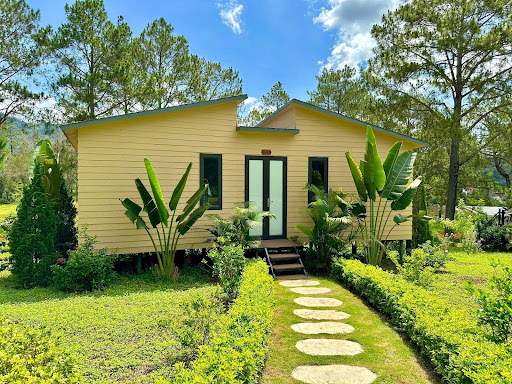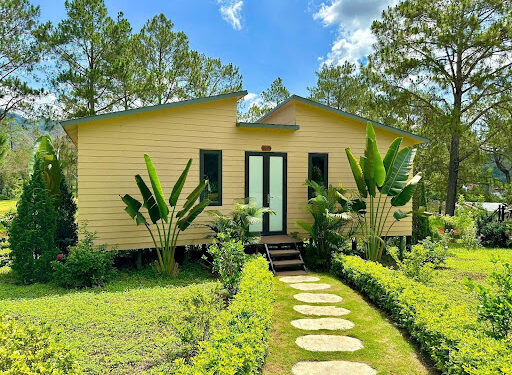Phoenix is no stranger to scorching summer days, with temperatures frequently climbing above 100 degrees Fahrenheit. While locals have their strategies to stay cool, the city’s plumbing systems face the relentless heat without respite.
The long heatwaves and scarce rainfall can challenge the resilience of even the best residential pipes. Materials may become brittle under thermal duress, and the constant expansion and contraction can strain pipes to their limits. This makes regular plumbing maintenance essential in the Valley of the Sun.
Understanding the Risk of Extreme Heat for Pipes
Why Phoenix’s Heat Is a Problem for Pipes
PVC, copper, and other commonly used pipe materials can expand and contract under extreme heat, leading to cracks, leaks, or even pipe bursts. Prolonged exposure to intense heat can accelerate the degradation of pipe materials, reducing their life span and increasing the likelihood of a bursting pipe. Fortunately, homeowners can take proactive steps to protect their pipes and mitigate potential damage from heat.
Common Signs of a Pipe at Risk
By recognizing the common signs that a pipe might be at risk, you can take steps to prevent a disaster. Here are the symptoms to watch for:
- Unusual noises from your plumbing
- Rattling or banging sounds from expansion and contraction
- Damp spots or leaks in floors, ceilings, or walls
- Noticeable drop in water pressure
By promptly identifying these signs of stress, homeowners can take immediate action and prevent problems from worsening.
The Consequences of Ignoring the Heat
Pipe Bursting: A Closer Look
When a pipe bursts, it can have a domino effect. Pipe bursting occurs when the pressure inside a pipe exceeds its structural integrity, causing it to rupture. The forceful expulsion of water can lead to extensive flooding within minutes, damaging walls, ceilings, floors, and belongings. In addition to immediate repair and cleanup costs, burst pipes might cause long-term structural damage and mold growth if not promptly addressed.
The Domino Effect of a Pipe Burst
The aftermath of a pipe burst in a house sets off a domino effect of rapidly escalating consequences. Immediately, water damage to walls, ceilings, and floors can occur. Lingering moisture provides an ideal breeding ground for mold and mildew, posing serious health risks to occupants and compromising indoor air quality. If left unchecked, the home’s structural integrity can be compromised over time. The potential ripple effects of a pipe burst demonstrate why it’s important to act quickly when your plumbing fails.

Proactive Measures to Protect Your Plumbing
Prevention Strategies
Several preventative measures can help prevent your pipes from bursting when exposed to high temperatures. Properly insulate exposed pipes in attics, crawl spaces, or along exterior walls to shield them from temperature fluctuations and reduce the risk of bursting. Regular inspections by licensed plumbers to identify and address potential vulnerabilities, such as corrosion or worn-out seals, are crucial for maintaining the integrity of your plumbing system. Install sun shades or protective coverings over outdoor pipes to shield them from direct sunlight, which reduces the risk of overheating and deterioration.
Early Detection Techniques
Early detection is critical for maintaining your plumbing. Monitoring water pressure regularly can help you identify decreases that may indicate underlying issues within your system, such as obstructions or leaks. Investing in leak detection systems, which utilize advanced technologies to detect and alert you to even the smallest of leaks, can provide early alerts of potential pipe failures before they escalate.
Responding to a Burst Pipe
Immediate Steps After a Pipe Burst
In the immediate aftermath of a pipe burst, you must take swift action to mitigate damage and prevent further complications. First, shut off the main water supply. Next, turn off the electricity in the affected area to reduce the risk of electrical hazards. Contact a licensed plumber or emergency repair service to assess the extent of the damage and initiate repairs promptly. Finally, remove water-damaged items and belongings to prevent mold growth and salvage valuables.
Burst Pipe Repair Options
You have several repair options when faced with a burst pipe. For minor leaks or small bursts, DIY repairs such as using pipe repair tape or pipe clamps may serve as temporary fixes. However, for more extensive damage, call a professional plumber immediately. Professional plumbers possess the expertise and equipment necessary to assess the situation accurately and complete appropriate repairs. Attempting complex repairs without adequate knowledge or experience could exacerbate the problem, leading to further damage and increased repair costs.
Navigating Insurance and Professional Help
Working With Insurance for Burst Pipe Claims
When dealing with insurance for burst pipe claims, thoroughly document all damages, including taking photographs and videos of the affected areas. Keep records of repair estimates and invoices. Report the incident to your insurance company promptly and provide them with detailed information about the damage and any preventive measures taken to mitigate further loss. Familiarize yourself with your insurance policy coverage, including deductibles and exclusions, to ensure a smooth claims process.
Choosing the Right Professional for Repairs
When choosing a professional for repairs following burst pipe damage, prioritize reliability and expertise. Research and vet potential plumbers or restoration services by checking their credentials, licenses, and certifications. Read reviews and seek recommendations from trusted sources. Ask about the company’s experience in handling burst pipe repairs, and ensure they offer timely and transparent communication throughout the process.
Protect Your Pipes Today
Phoenix’s extreme heat can cause extensive damage to residential plumbing systems, and it’s crucial to understand the risk and take steps to prevent damage. By prioritizing prevention measures such as proper insulation and regular inspections, you can protect your pipes against high temperatures. Early detection techniques and prompt responses to burst pipe incidents are essential for minimizing damage and expediting the restoration process. Finally, working with a knowledgeable plumbing professional can help ensure a smooth repair process following a pipe burst. Don’t wait for the heat to take its toll on your pipes. Take preventive action today and ensure you’re prepared to handle any pipe emergencies that come your way!






